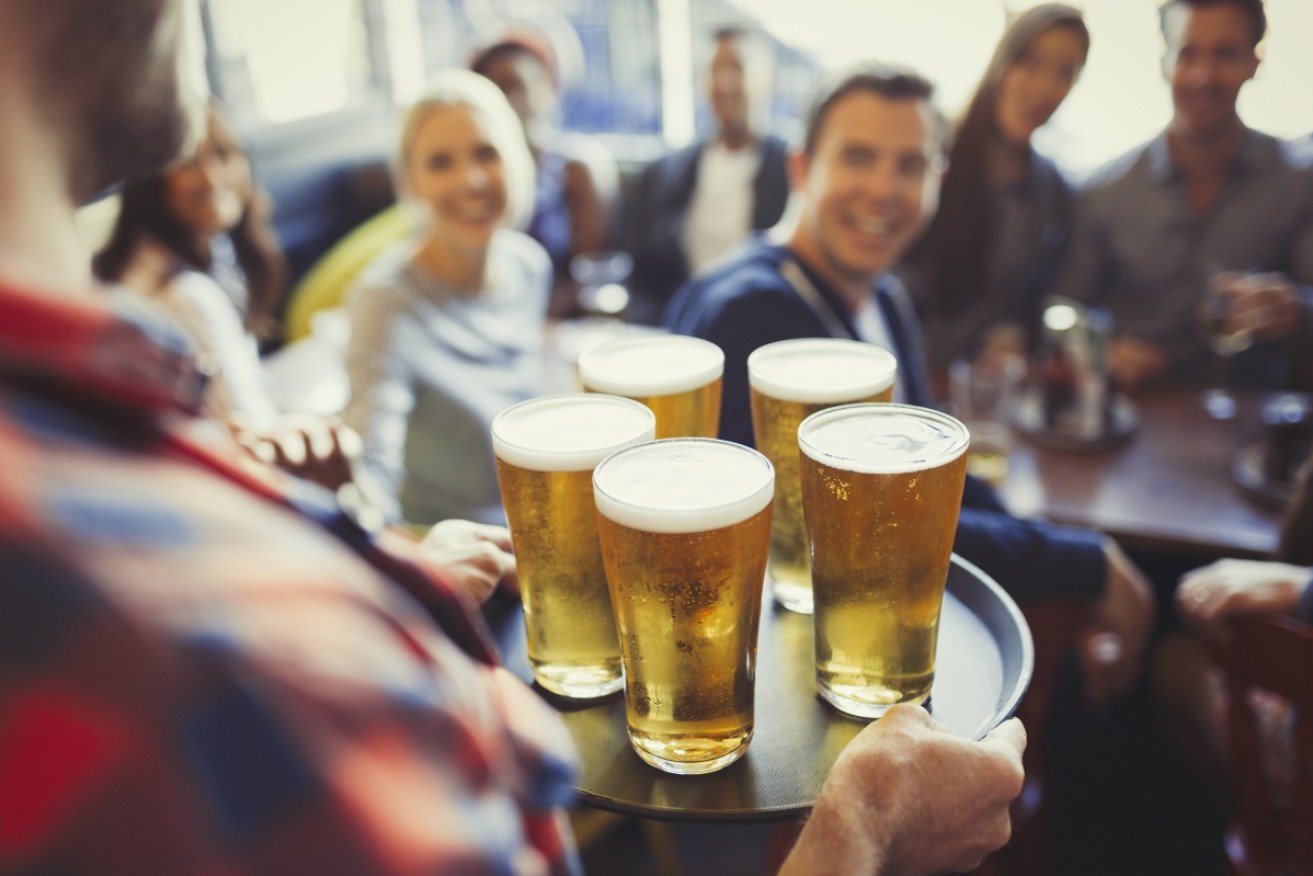Don’t be fooled by ‘low-carb’ beer


Low-carb beers are as unhealthy as regular beers, Cancer Council says. Photo: Getty
So-called “low-carb” beer is just as detrimental to your health as regular beer, with new research revealing the nutrition label is nothing more than a marketing ploy.
More than one in three men and one in five women surveyed by public health group LiveLighter wrongly believed that beers marketed as low in carbohydrates were healthier than regular options.
Some low-carb beers did not have fewer carbs than regular beer, a joint analysis of popular Australian beers by Cancer Council Victoria and LiveLighter revealed.
For example, there were more carbohydrates in a “lower-carb” Carlton Dry (1.9 grams per 100 millilitres) than a standard lager or ale (1.4 grams per 100 millilitres).
LiveLighter campaign manager and dietitian Alison McAleese said the problem with alcoholic drinks is not in the amount of carbohydrates they contain.
Rather, it is the alcohol content in the beer which significantly increases the kilojoule intake and directly contributes to more than 3200 cancer cases each year in Australia, Ms McAleese said.
“Alcohol brands aren’t required to disclose kilojoule content and nutrition information, so consumers are far more likely to be duped into thinking beer is healthy by sneaky marketing messages like ‘low carb’.”
About 80 per cent of the kilojoules in a typical beer come from the alcohol itself, and only about 15 per cent come from carbohydrates, Ms McAleese said.
“Look at the percentage of alcohol that’s in that drink and try and choose a lower-alcohol beer or a light beer.”
Craig Sinclair, the head of cancer prevention at the Cancer Council Victoria, said all the different variations of alcohol are unhealthy.
“Consumers are being hoodwinked by the industry.”
The New Daily spoke with two dietitians to bust some common myths behind “healthy” foods that are anything but.
Flavoured mineral water
It’s not worth it, says Gabrielle Maston, accredited practising dietitian and spokesperson for the Dieticians Association of Australia.
Bought for its high-mineral content, flavoured mineral water has a worryingly high carbohydrate content, Ms Maston said.
“The best thing to drink for people is water rather than something that’s sweetened.”

The body struggles to absorb inorganic minerals. Photo: Getty
Fruit juice
Fruit juice with “no added sugar” and “100 per cent real fruits” is loaded with natural sugars that can be bad for your health despite the absence of additives, sweeteners or preservatives, Ms Maston said.
“If we’re drinking a glass of orange juice, we’re really … eating the equivalent of five or six oranges in just one glass.
“You wouldn’t be able to physically eat that many oranges, but you could certainly drink that down in a few seconds.”

Don’t be fooled by the ‘no added sugar’ label on fruit drinks. Photo: Getty
Coconut oil
Coconut oil, contains medium-chain fatty acids – a type of saturated fat naturally derived from coconut and palm oil – which helps burn fat faster.
About 90 per cent of coconut oil is comprised of saturated fat which could raise cholesterol levels and increase your risk of heart disease.
“The research shows that if we replace a lot of our saturated fat with healthier fats coming from things like olive oil, avocado, nuts and seeds, our health is much better for it.”

Using coconut oil sparingly in your diet is better for your health. Photo: Getty
Processed sugars

Rice malt syrup is made from organic brown rice. Photo: Woolworths
Agave, rice malt syrup and dextrose are used as a substitute for sugar, Ms Maston said.
“All of those are the equivalent of having normal table sugar except they’re twice the price and have the health halo around them.
“They have the same calorie content and same level of sweetness.”
Liquorice
Liquorice is often used to to treat constipation, but if consumed in excess, can be bad for your health, Ms Maston said.
“It does contain a lot of fibre but at the same time it contains a lot of sugar.
“There are other things that people could use to help them go to the bathroom if they’re having constipation issues.
“For example, using Metamucil or just having enough fruit and vegetables in their diet to help their bowels move.”

Liquorice is often used as a laxative by many older Australians. Photo: Getty
Veggie chips
Veggie chips are as unhealthy as regular potato chips, Melbourne-based dietitian Sarah Leung said.
There is a common misconception that veggie chips are high in dietary fibre, but they are actually significantly higher in saturated fats.

Veggie chips are just as unhealthy as regular potato chips. Photo: Getty
Gluten-free foods
A gluten-free diet would only benefit people who are gluten-intolerant and people who have coeliac disease, Ms Leung said.
A lot of companies that create gluten-free products “would add extra sugar, fat and salt” to make up for the change in taste and texture after gluten is removed.

If you’re not gluten-intolerant, avoid processed gluten-free foods. Photo: Getty








